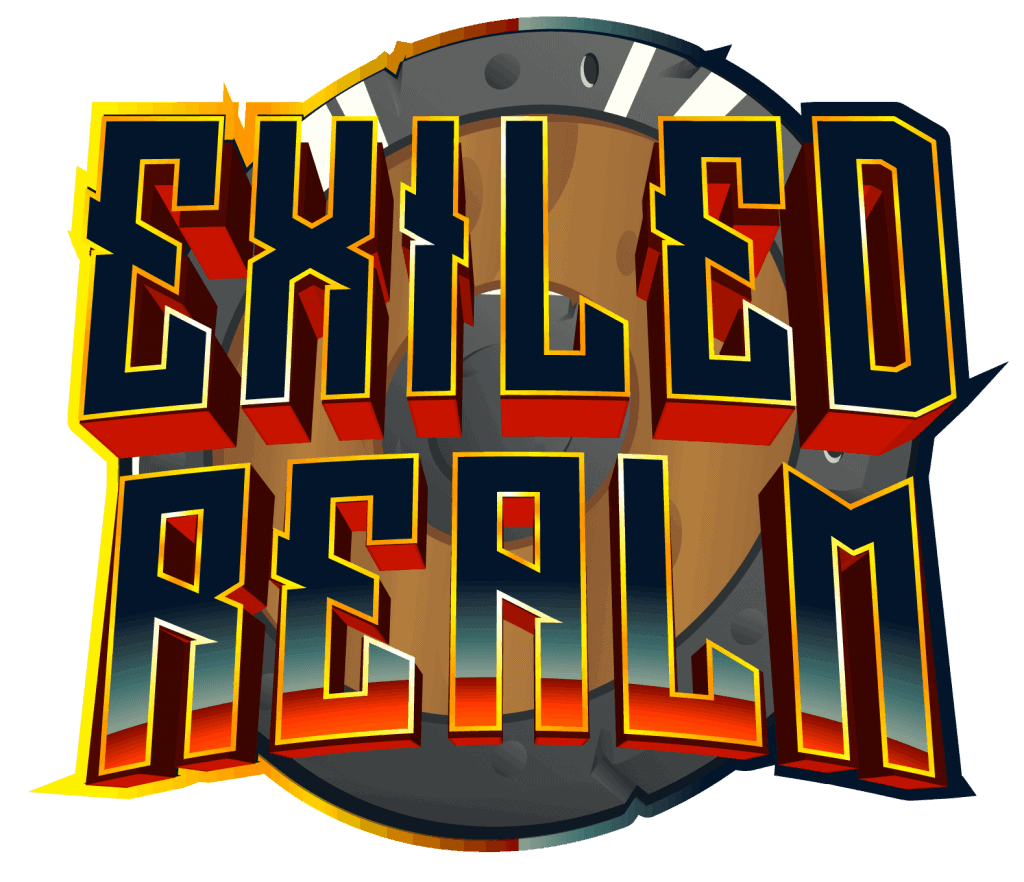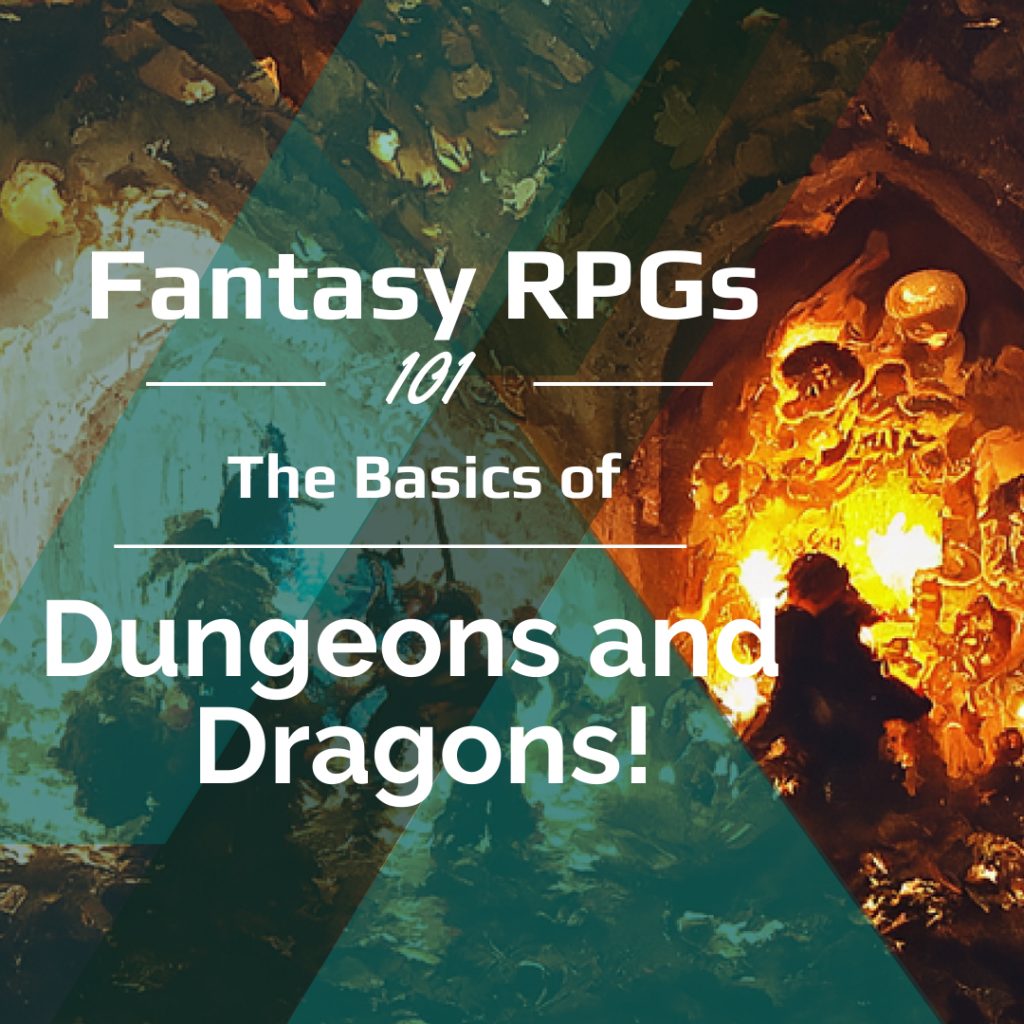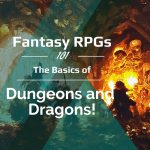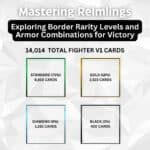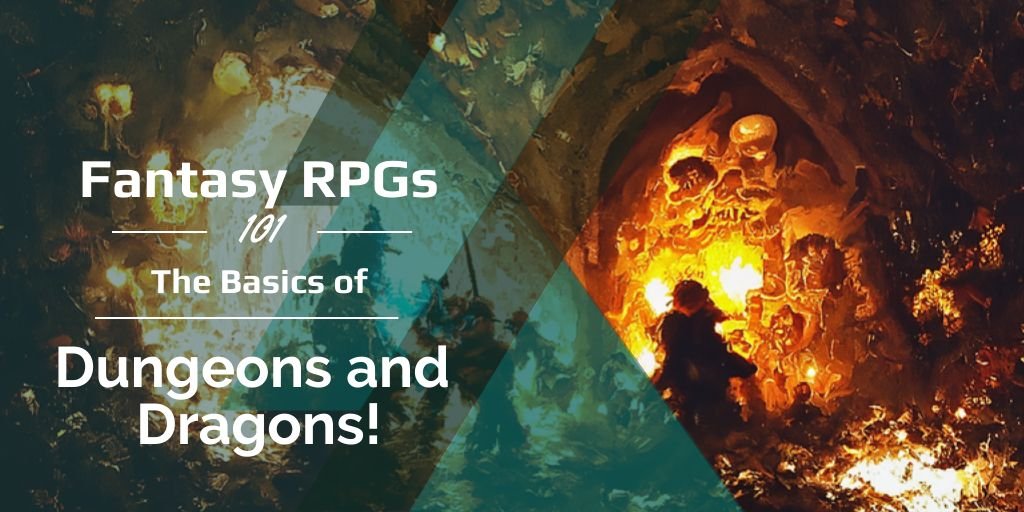
Fantasy RPGs 101: The Basics of Dungeons and Dragons
Hello Friends,
Growing up, one of my favorite games was (*And still is Dungeons and Dragons). So today let’s talk about this classic that is still rocking basements around the world.
So you’ve heard people talking about Dungeons and Dragons, or maybe you’ve even read some articles on the topic. And now you wonder: what exactly is this game, and why would anyone spend so much time and energy playing it? Are these players just weirdos with too much time on their hands? Perhaps they should get a life. How could sitting around a table pretending to be elves and dragons possibly be entertaining? You might think that this is all just some nerdy, geeky thing…but why? It sounds bizarre, even for an RPG (Role Playing Game). Most gamers would probably agree that D&D falls under the category of “niche game”. But if you give it a chance and learn more about it…you might end up enjoying it as much as those crazy D&D players do!
What is Dungeons and Dragons?
At its core, Dungeons and Dragons is a tabletop game where players create characters and then engage in an adventure that is created by a game master. The DM has complete control over the world they have created and they have the final say on what happens in the game. So players don’t get to dictate where they go or what they do. Instead, they will have to play out the DM’s story and try to achieve their goals.
There are a number of different versions of D&D and it may be helpful to know that the game has changed and evolved over time. For example, in the earliest versions of the game, players were given extremely lengthy rules for how to play the game. Today, however, the rulebooks are much more concise and easy to understand. D&D may sound like a simple diversion for children, but it can actually be played by people of all ages.
The Basics of D&D
The most important rule: Take this game seriously!
Remember that this is a game where you create characters and spend a great deal of time with them. If someone is playing an evil character, they should be evil in every sense of the word. Don’t be silly and immature. Be respectful. Be polite. Be considerate. Be mature. And most importantly, have fun!
All of these are important tips that you should take to heart if you want to get the most out of your D&D experience.
After all, the only way to improve is to practice. And there is no better way to practice than to play a tabletop game like this. In addition, you can play this game with your friends and use it as a way to spend more time with them and bond. But you must remember that this isn’t something that you can just jump into. You have to learn how to play D&D first.
The first step to playing D&D is to create a character. Every game is different, so it’s important to pay attention to the rules for the version of D&D that you want to play.
For example, in the fifth edition of D&D, the rules state that a character must have five different statistics: Once you have created a character, you then work with other players and a game master to create an adventure.
Typically, the game master will have a story already in mind. But they may also allow players to create some of the stories. So it’s important to keep in mind that no one person has all the control. You are all working together to create a story.
Once you begin playing, the game master will begin to direct the story. And at that point, your job is to make sure your character acts in a way that helps the party reach its goal. You may have to make some tough choices, but that is what makes this game so challenging and exciting.
Why do People Play D&D?
There are plenty of reasons why people play D&D. For starters, it’s a cooperative game. This means that you are working together with other players and a game master to reach a common goal. This is opposed to a competitive game where everyone is working against each other, trying to achieve their goals.
This is a game where you can spend hours creating a character, developing a personality, and even finding ways to equip them. Then you get to use your character to explore a world and complete quests. And many people like to role-play as their characters. This means that you will try to speak, walk and act as your character would. This is a great way to make the game more exciting.
D&D and RPG Basics
If you are new to tabletop games, you may not be very familiar with RPG lingo.
The following terms may help you understand the basics of Dungeons and Dragons:
- DM: DM stands for Dungeon Master. This is the person who creates the world, creates characters, and describes the story.
- Party: This is the group of people who are playing together.
- PC: PC stands for the player character. This is your character who you are playing.
- NPC: NPC stands for non-player character. This is a character who is not controlled by a player.
- Campaign: This is the overarching story that is told throughout the entire game.
- Initiative: This refers to how quickly you act in combat.
- Roll: This is when you roll a die and try to get a high enough number to succeed.
- HP: HP stands for Hit Points. This is how much damage your character can take before they die.
- Save: This is when you roll a die to try to prevent something bad from happening.
The Bottom Line
Dungeons and Dragons is a game where you create a character and go on an adventure with other players. You can learn about your character, develop their personality and gear, explore a world, and complete quests. Many people like to role-play as their characters, too. This is a great way to spend time with friends and have fun!
Do you play D&D, or have you?
What are your thoughts about this game?
Cheers and Roll a 20!
